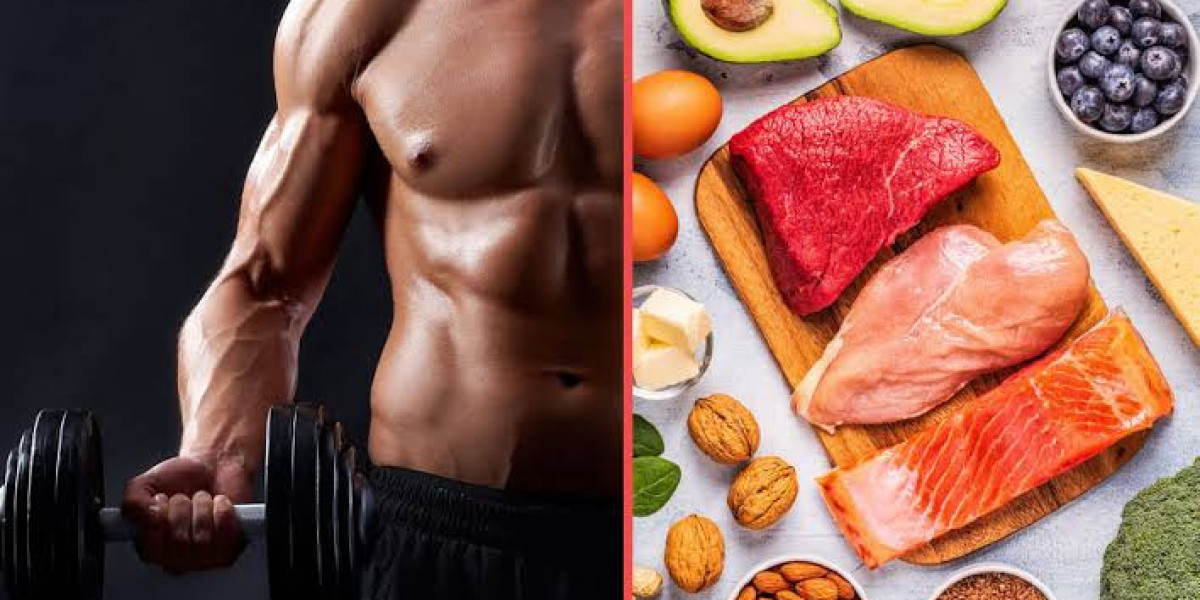The pursuit of a fit and strong body is a journey that extends far beyond the confines of the gym. While exercise is a critical component, the foods we consume are the very building blocks of our physical form, the fuel that powers our movements, and the essential nutrients that support our overall well-being. A well-structured diet, rich in a variety of whole foods, is the cornerstone of achieving and maintaining a state of peak physical fitness. This comprehensive guide will explore the key food groups and nutrients that are paramount for building muscle, sustaining energy, and keeping your body in optimal condition.
At the heart of a fitness-oriented diet lies the triumvirate of macronutrients: proteins, carbohydrates, and fats. Each plays a distinct and vital role in the intricate processes that govern muscle growth, repair, and energy metabolism. Understanding the function of each and incorporating high-quality sources into your daily meals is fundamental to your success.
Protein, often hailed as the king of muscle-building nutrients, is indeed the primary structural component of muscle tissue. When you engage in physical activity, particularly resistance training, you create microscopic tears in your muscle fibers. Protein provides the necessary amino acids, the building blocks that repair this damage and, in the process, build the muscle back stronger and larger. To effectively support muscle synthesis, it is crucial to consume an adequate amount of high-quality protein from a variety of sources.
Lean meats are a popular and effective choice. Chicken and turkey breast are excellent sources of lean protein, providing a substantial amount with minimal fat. Red meats like lean beef are also beneficial, offering the added advantage of iron and B vitamins, which are crucial for energy production and oxygen transport to the muscles. Fish, particularly fatty fish like salmon, tuna, and mackerel, are not only rich in protein but also provide omega-3 fatty acids, which have anti-inflammatory properties that can aid in recovery.
For those who follow a plant-based diet or wish to diversify their protein intake, there are numerous powerful options. Eggs are a complete protein, meaning they contain all the essential amino acids your body needs. Dairy products like Greek yogurt and cottage cheese are packed with protein, with cottage cheese being particularly rich in casein, a slow-digesting protein that can provide a sustained release of amino acids, making it an excellent option before bed. Legumes such as lentils, chickpeas, and black beans are fantastic sources of both protein and fiber. Soy products like tofu and edamame are also complete proteins and versatile additions to any meal.
Carbohydrates are the body's preferred source of energy. They are broken down into glucose, which is stored in your muscles and liver as glycogen. During exercise, your body draws upon these glycogen stores to fuel your performance. Consuming the right types of carbohydrates is essential for sustained energy levels and optimal athletic output. It is important to distinguish between simple and complex carbohydrates.
Complex carbohydrates are digested more slowly, providing a steady release of energy without causing sharp spikes and subsequent crashes in blood sugar levels. These are the ideal fuel for a fit body. Excellent sources of complex carbohydrates include whole grains like oats, brown rice, quinoa, and whole-wheat bread. These foods are also rich in fiber, which aids in digestion and promotes a feeling of fullness, helping with weight management. Starchy vegetables such as sweet potatoes and butternut squash are another superb choice, providing a wealth of vitamins and minerals alongside their energy-boosting carbohydrates.
Simple carbohydrates, found in sugary drinks, candies, and processed snacks, should be consumed in moderation. While they can provide a quick burst of energy, they are often devoid of other essential nutrients and can lead to energy slumps. Fruits are a source of simple carbohydrates, but they are also packed with vitamins, minerals, and fiber, making them a healthy and beneficial part of a balanced diet.
Fats, often unfairly demonized, are a crucial component of a healthy diet and play a significant role in overall fitness. They are essential for hormone production, including hormones that are vital for muscle growth and repair. Healthy fats also play a role in reducing inflammation and supporting joint health. The key is to focus on unsaturated fats while limiting saturated and trans fats.
Excellent sources of healthy unsaturated fats include avocados, which are rich in monounsaturated fats and potassium. Nuts and seeds, such as almonds, walnuts, chia seeds, and flaxseeds, are nutritional powerhouses, providing a combination of healthy fats, protein, and fiber. Olive oil, particularly extra virgin olive oil, is a staple of a healthy diet and a great source of monounsaturated fats. Fatty fish, as mentioned earlier, are a prime source of omega-3 polyunsaturated fatty acids.
Beyond the macronutrients, micronutrients in the form of vitamins and minerals are the unsung heroes of a fit and healthy body. They are involved in countless metabolic processes, from energy production to immune function and bone health. While a balanced diet rich in whole foods will typically provide a wide array of these essential nutrients, some are particularly noteworthy for those with fitness goals.
Calcium, found in dairy products, leafy greens, and fortified foods, is crucial for strong bones and muscle contractions. Iron, abundant in red meat, spinach, and lentils, is essential for carrying oxygen in the blood, a process that is vital for endurance and overall energy. B vitamins, found in a variety of foods including whole grains, eggs, and lean meats, play a key role in energy metabolism, helping your body convert the food you eat into usable fuel. Antioxidants, found in colorful fruits and vegetables like berries, citrus fruits, and leafy greens, help combat oxidative stress caused by intense exercise, supporting recovery and overall health.
In conclusion, the food you eat is a powerful tool in your fitness arsenal. By focusing on a diet rich in a variety of nutrient-dense whole foods, you provide your body with the essential building blocks and fuel it needs to perform at its best, recover effectively, and maintain long-term health and vitality. Prioritize lean proteins to build and repair muscle, fuel your workouts with complex carbohydrates for sustained energy, and incorporate healthy fats to support hormone function and overall well-being. Complement this with a wide array of fruits and vegetables to ensure you are getting the vitamins and minerals necessary for optimal bodily function. A mindful and consistent approach to nutrition is not merely a diet; it is a lifestyle that will empower you to build and keep the strong, fit body you desire.










